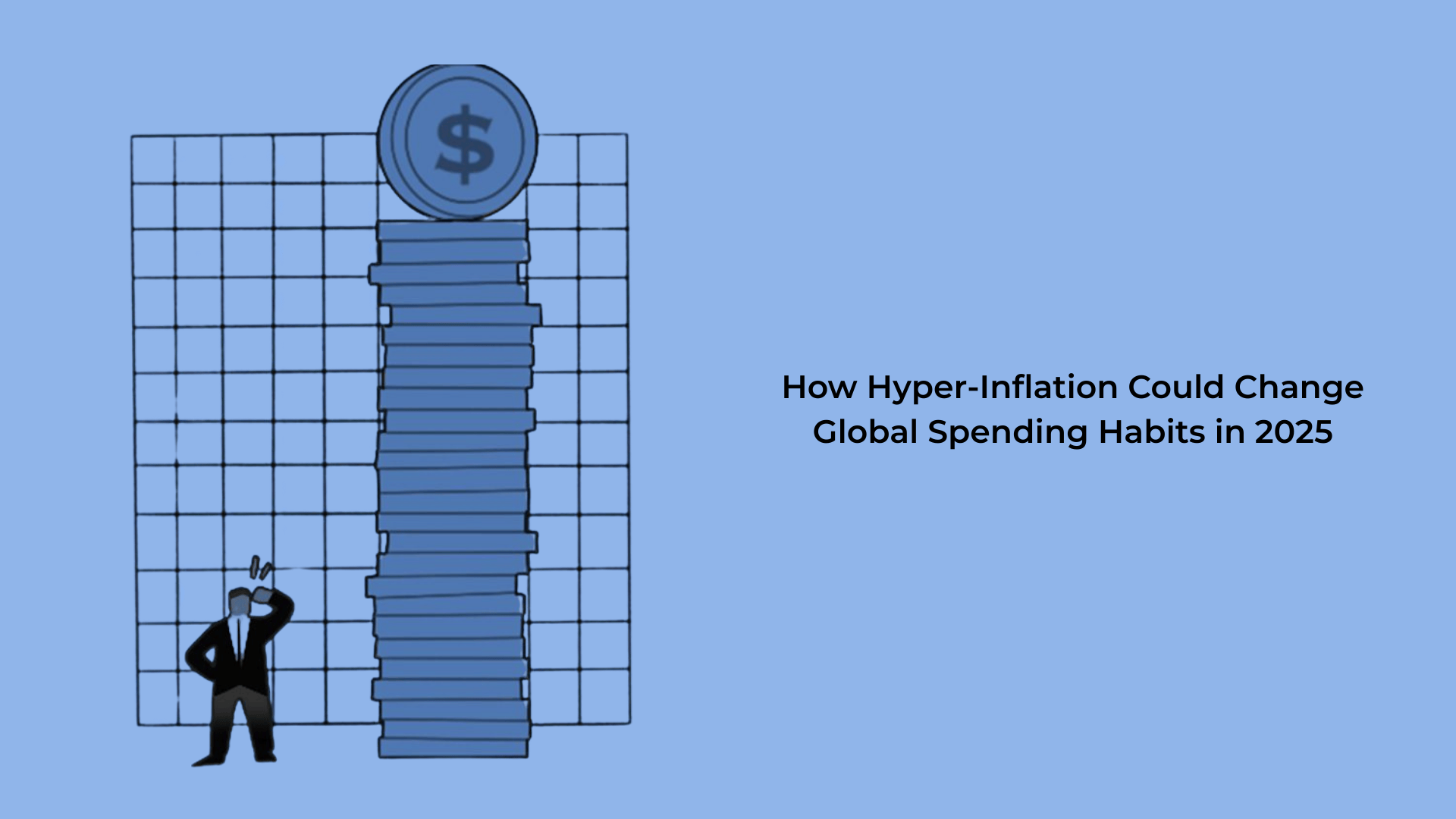Hyperinflation is no longer a distant economic theory—it’s a reality affecting various countries, reshaping global markets, and forcing consumers to rethink their spending habits. As prices soar and purchasing power declines, businesses and individuals must adapt to survive.
In this article, we’ll explore how hyperinflation could shape global spending habits in 2025 and what consumers and businesses can do to stay ahead.
What is Hyperinflation?
Hyperinflation occurs when prices rise uncontrollably over a short period, drastically reducing the value of money. Unlike regular inflation, which happens gradually, hyperinflation can devalue currency by hundreds or thousands of percent within months.
Recent Examples of Hyper-Inflation:
- Venezuela (2010s): Inflation rates reached over 1,000,000%, making daily essentials unaffordable.
- Zimbabwe (2000s): Prices doubled every few hours, leading to the printing of trillion-dollar banknotes.
- Turkey, Argentina, and Lebanon (2020s): Experiencing severe currency devaluation and rising living costs.
As global supply chains remain fragile and central banks struggle to control inflation, could more countries face similar crises in 2025?
How Hyper-Inflation Could Change Global Spending Habits
1. Shift Towards Essential-Only Spending
When the cost of living skyrockets, luxury and non-essential spending decline. Consumers focus on basics like food, shelter, and healthcare. In hyper-inflation scenarios, we may see:
✅ Increase in Bulk Buying: People stockpile essentials before prices rise further.
✅ Cutbacks on Dining & Entertainment: More home-cooked meals and free leisure activities.
✅ Rise in DIY & Repairs: Consumers fix and repurpose old items instead of buying new ones.
2. Digital & Crypto Payments Could Become the Norm
In hyperinflation-hit economies, people often lose trust in national currencies. In 2025, we could see:
✅ Rise in Cryptocurrency Adoption: Bitcoin, stablecoins, and CBDCs (Central Bank Digital Currencies) may become preferred for transactions.
✅ Bartering & Alternative Currencies: Goods and services could be exchanged without relying on government-issued money.
✅ Increased Use of Foreign Currencies: Some nations may unofficially switch to stronger currencies like the USD or Euro.
3. The Death of Traditional Savings
Keeping savings in cash or low-interest bank accounts becomes pointless when money loses value quickly. Instead, people may:
✅ Invest in Hard Assets: Gold, silver, real estate, and commodities like oil and grain may replace cash savings.
✅ Prioritize Quick-Turnaround Investments: Stocks and digital assets with the potential for rapid gains could attract more interest.
✅ Stockpile Long-Term Goods: People may invest in non-perishable food, medicines, and other essentials rather than holding devaluing cash.
4. Businesses Will Adapt to Inflation-Proof Pricing
Businesses facing fluctuating costs may:
✅ Introduce Dynamic Pricing: AI-driven pricing models adjust based on demand and inflation trends in real time.
✅ Adopt Subscription Models: Monthly plans for essential goods and services (like groceries and fuel) may become more common.
✅ Rely on Direct-to-Consumer (DTC) Sales: Cutting out intermediaries to keep prices stable and margins higher.
5. Governments May Implement Extreme Economic Measures
To control hyper-inflation, governments might:
✅ Increase Interest Rates to Curb Spending: This could also lead to recessions.
✅ Introduce Price Controls: Temporary limits on goods prices, but with risks of black markets.
✅ Consider Digital-Only Currencies: Some nations may eliminate physical cash to track better and control the money supply.
How to Prepare for Hyper-Inflation in 2025
If global inflation worsens, here’s how individuals and businesses can adapt:
🔹 Diversify Your Income: Multiple revenue streams provide stability in uncertain times.
🔹 Invest in Hard Assets: Real estate, gold, and digital assets can protect against currency devaluation.
🔹 Reduce Debt: High-interest debt becomes more complicated to manage in inflationary periods.
🔹 Learn New Skills: Adaptability and self-reliance are key in uncertain economies.
Final Thoughts: Will 2025 Be the Year of Economic Survival?
Hyperinflation, while rare, can reshape economies, businesses, and daily life. Whether it’s shifting spending habits, relying on digital currencies, or adopting new business models, the world is changing.
The question is: Are we ready?

